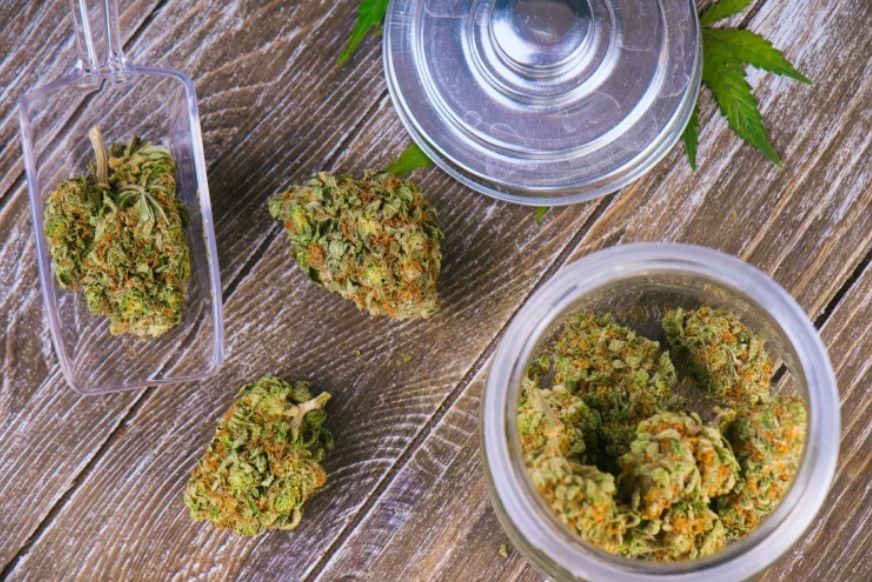In recent years, the demand for cannabis has skyrocketed, with many turning to online platforms to purchase marijuana for both recreational and medicinal purposes. Whether you’re looking to buy marijuana for relaxation, stress relief, or simply to unwind, understanding its effects on mood and emotional well-being is crucial. Cannabis has long been associated with mood enhancement, but its impact on emotional health can vary significantly from person to person.
The Active Compounds in Marijuana
Marijuana contains various active compounds, but the two most well-known are tetrahydrocannabinol (THC) and cannabidiol (CBD). THC is the psychoactive compound responsible for the “high” associated with marijuana use, while CBD is non-psychoactive and has been studied for its potential therapeutic benefits. Both compounds can have distinct effects on emotional health, and the balance between them can influence the overall experience.
THC and Mood Changes
THC interacts with the brain’s endocannabinoid system, which plays a role in regulating mood, stress, and emotional responses. When THC enters the body, it binds to cannabinoid receptors in the brain, stimulating the release of dopamine, often referred to as the “feel-good” neurotransmitter. This interaction can result in feelings of euphoria, relaxation, and altered perceptions of time and space.
For many, these effects contribute to a temporary sense of happiness or well-being. However, in some individuals, especially those who are new to marijuana or consume high doses, THC can also lead to anxiety, paranoia, and increased stress levels. This is particularly true in environments where users feel uncomfortable or when consumed in excessive amounts. It’s important to note that the impact of THC on mood can vary from person to person, depending on factors such as tolerance, dosage, and individual brain chemistry.
CBD and Emotional Balance
CBD, on the other hand, does not produce a “high” and is believed to interact with the brain differently. Rather than stimulating the release of dopamine, CBD is thought to influence serotonin and other neurotransmitters involved in regulating mood. Research suggests that CBD may have a calming effect on the nervous system and may help reduce symptoms of anxiety and depression.
People who suffer from mood disorders like generalized anxiety disorder (GAD) or post-traumatic stress disorder (PTSD) have reported feeling a sense of calm and emotional balance after using CBD. In fact, CBD is commonly used as a treatment for anxiety, as it has been shown to help reduce feelings of nervousness or panic in some users without the intoxicating effects of THC.
Marijuana’s Impact on Stress and Anxiety
One of the most common reasons people turn to marijuana is to cope with stress and anxiety. Both THC and CBD have been studied for their effects on stress levels, and they can have varying impacts depending on the individual.
Stress Relief from Marijuana
For many people, marijuana provides immediate relief from stress and tension. The calming effects of both THC and CBD can make it easier to unwind and escape from daily pressures. However, while some individuals find marijuana useful for managing stress, others may experience heightened anxiety or discomfort. It is important to consider the setting and mindset when using marijuana for stress relief, as a negative environment or excessive use can trigger feelings of unease.
In moderation, marijuana may help reduce the physical symptoms of stress, such as muscle tension and elevated heart rate. It can also create a sense of relaxation and well-being, making it easier for individuals to manage their emotional health.
Potential for Increased Anxiety
While marijuana may provide relief for some, it can also have the opposite effect. High doses of THC, in particular, can induce anxiety and even panic attacks in certain individuals. This is often the case when marijuana is consumed in unfamiliar or uncomfortable situations. THC’s impact on mood can be unpredictable, and for people with a history of anxiety disorders or paranoia, marijuana may exacerbate symptoms rather than alleviate them.
CBD, however, tends to have the opposite effect, with studies suggesting it may actually help reduce anxiety symptoms. Because CBD doesn’t produce the intoxicating effects of THC, it is considered a safer option for those seeking to manage stress and anxiety without the risk of triggering negative emotional responses.
Conclusion
Marijuana’s impact on mood and emotional health is multifaceted, with both positive and negative effects depending on the individual and the type of cannabis used. While THC may provide temporary feelings of euphoria and relaxation, it can also increase anxiety in some users. CBD, on the other hand, appears to have a calming effect and may help alleviate anxiety and stress without the risk of intoxication.

